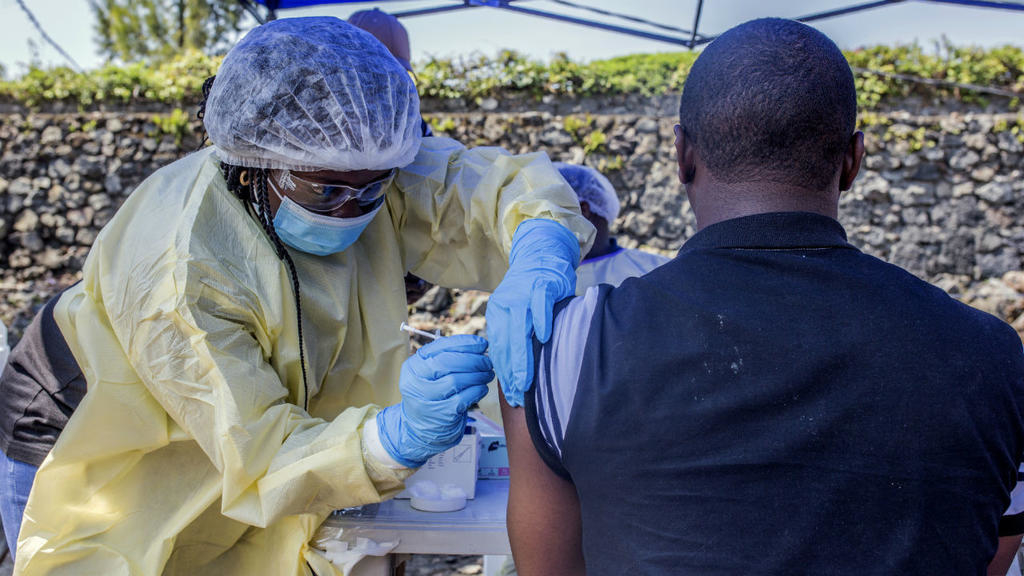Health
Second Ebola patient in Congo’s key city dies

The second patient infected with the Ebola virus in Congo’s major city of Goma has died, a health official said.
Jean-Jacques Muyembe, the director of the Institute for Biomedical Research, which is leading Congo’s Ebola response, told dpa in an interview.
“The patient died Wednesday morning because he was already weakened and his illness was discovered late,” he said.
The World Health Organisation (WHO) declared the Ebola outbreak an international health emergency earlier this month, after the first Ebola infection was recorded in Goma, a city of about two million people near the border with Rwanda.
Our correspondent reports that when Ebola broke out in the Democratic Republic of the Congo a year ago, the global stockpile of a long-anticipated vaccine was 300,000 doses.
At the time, that seemed like plenty.
But as the virus spreads from the epicenter and threatens to explode across the region, the supply of Merck’s newly developed vaccine – once expected to function as a silver bullet – is dwindling, and likely to burn out before the outbreak does.
Officials have gone head-to-head in a bitter clash over the next line of attack.
The country’s health minister stepped down last week rather than bow to international pressure to also start using another vaccine that is much more experimental.
He had banned its use over doubts about its effectiveness.
The manufacturer, Johnson & Johnson, says it has 1.5 million doses on hand and is ready to start sending them to the region.
Even if there were enough lifesaving vaccines to go around, the region’s violent conflict has made it virtually impossible for health workers to deliver the shots to every relative and neighbor of each Ebola victim.
J. Stephen Morrison, senior vice president of the Center for Strategic and International Studies in Washington said: “There’s a level of panic lurking just below the surface—or maybe it’s above the surface now.
“No one imagined the level of violence in Ituri and North Kivu”—two eastern provinces—”would be so extensive that they wouldn’t be able to contain this. Now, vaccines have become that much more important in containing the outbreak.”
The Ebola virus causes leaky blood vessels and circulatory failure, which starves the body’s organs of oxygen—leading to shock and multiple organ failure.
It spreads directly from person to person through infected blood, sweat and vomit.
For people who are already infected with the virus, a vaccine can’t help.
During the last Ebola outbreak, in West Africa in 2014 and 2015, there was no vaccine immediately available, a reality that left every person susceptible.
By the end, 28,600 people were infected and more than 11,000 died.
But that epidemic eventually became a testing ground for the Merck vaccine, which had been under development for more than a decade and was deployed to Guinea, where it showed positive results.




 Davido's Net Worth & Lifestyle
Davido's Net Worth & Lifestyle 
